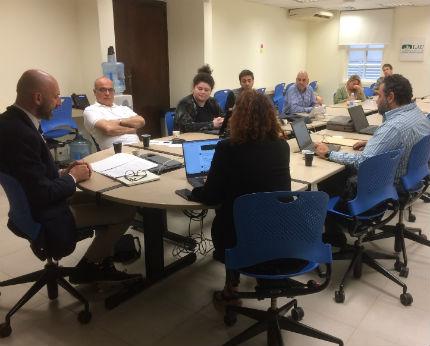Identity, Immigration and the Rise of Populism in Europe

Associate Professor of International Relations at the University of East London Branislav Radeljić gave a lecture on the rise of populism in Europe, contextualizing it in a post-World War II framework.
The event was organized by LAU’s Institute for Social Justice and Conflict Resolution (ISJCR) and the Department of Social Sciences and attended by students and faculty, including department Chair Marwan Rowayheb, ISJCR Associate Director Sami Baroudi and Director of the Institute for Migration Studies Paul Tabar.
ISJCR Director Tamirace Fakhoury said the seminar, which took place on the Beirut campus, shed light on a very timely and relevant phenomenon at the heart of societal and policy debates.
“Will the rise of European right-wing parties endanger the project of the European Union which rests on principles of solidarity and pooled sovereignty?” asked Dr. Fakhoury, who is also associate professor of Political Science and International Affairs.
Highlighting the importance of historical dynamics, Dr. Radeljić began the seminar by unpacking the notions of identity and immigration. He underlined that since the beginning of the European integrationist project, many have viewed the question of immigration as a challenge to European identity and overall unity.
“European otherness, and primarily the presence of Muslims in Western Europe, continued to encourage debates regarding the capacity of immigrants to integrate and become part of the mainstream society,” he said.
He added that the complex perspective of “us” versus the “other” is “more accentuated in times of economic and political crises,” with representatives of both the left and right trying to revamp their agendas and secure additional votes.
Dr. Radeljić argued that the rise of populism placed immigration and European identity at the forefront of policy-making considerations, with a clear preference for the intergovernmental approach to the European Union. At the same time, he noted that current skepticism has put the glorified notions of European tolerance and solidarity to the test.
Wrapping up his talk, Dr. Radeljić borrowed from Jacques Derrida’s L’Autre Cap saying, “Europe advances and promotes itself as an advance, and it will never seize to make advances on the other: to induce, seduce, produce, and conduce, to spread out, to cultivate, to love or to violate, to colonize and to colonize itself.”